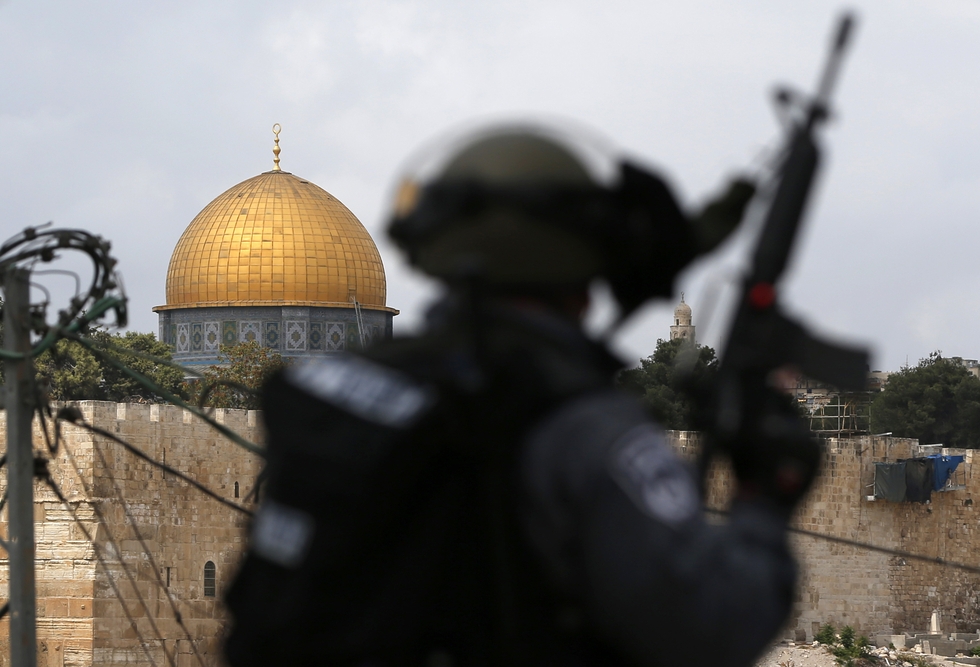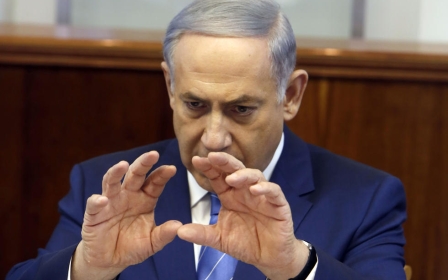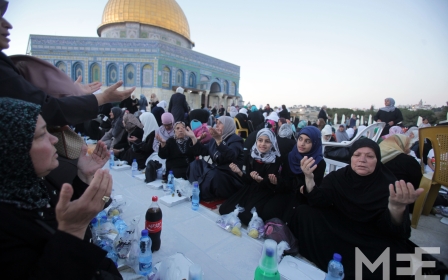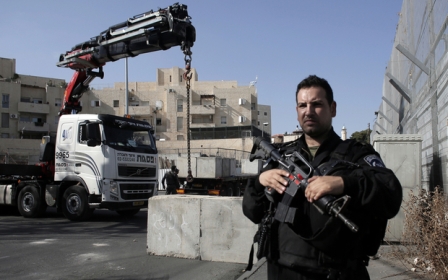Draft Arab UNESCO resolution on al-Aqsa compound sparks Israeli outrage

Arab states have submitted a draft resolution to UNESCO, the UN’s cultural body, about the flashpoint al-Aqsa compound, sparking outrage in Israel.
According to a draft text seen by AFP on Tuesday, Algeria, Egypt, Kuwait, Morocco, Tunisia and the United Arab Emirates condemned Israeli actions at the compound, including restricting access to Muslim worshippers during Eid celebrations last month over security fears.
The resolution went on to state that Jerusalem's Western Wall - the holiest site at which Jews can pray - was an "integral part" of the al-Aqsa mosque compound. The draft will now be put to a vote on Wednesday or Thursday within UNESCO's 58-member executive board.
Israel denounced the statement as "a clear endeavour to distort history" and appropriate the site.
"The Temple Mount and the Western Wall in the heart of Jerusalem lie at the foundation of Jewish history. These are incontrovertible facts of history," said Deputy Foreign Minister Tzipi Hotovely.
The flashpoint compound, which is considered sacred to both Islam and Judaism, is located in the southeastern corner of the Old City in Israeli-annexed East Jerusalem. Muslims call it al-Haram al-Sharif (the Noble Sanctuary) while Jews refer to it as the Temple Mount which housed the First and Second Temples.
Located adjacent to the sprawling esplanade, the Western Wall is the most sacred site at which Jews are officially allowed to pray. They are not permitted to worship at the compound itself but Palestinians accuse Israel of trying to change the status quo. They also claim that a growing number Jews – including highly controversial groups like the Temple Mount Heritage Foundation that advocates for the destruction of the Aqsa mosque - have been allowed into the site in recent months and years.
Clashes between Israeli police and Palestinian protesters at the compound in September are widely thought to have led to the current wave of deadly violence in Israel and the Palestinian territories.
UNESCO chief Irina Bokova on Tuesday expressed concern about the motion.
"She deplores the recent proposals under discussion by the UNESCO executive board that could be seen to alter the status of the Old City of Jerusalem and its walls, inscribed on UNESCO's World Heritage list, and that could further incite tensions," the UN body said in a statement.
"The director-general appeals to the UNESCO executive board to take decisions that do not further inflame tensions on the ground and that encourage respect for the sanctity of the holy sites."
UNESCO became the first UN agency to accept Palestine as a full member in 2013. The motion passed by a vote of 107 in favour to 14 against, with 52 abstentions.
Historic divisions
From 1967 to 2003, the Jordanian Islamic Endowments was in charge of the al-Aqsa compound, regulating the entry of non-Muslims.
However, following the outbreak of the second intifada Israeli security forces took control and banned Jordanian authority. They now regulate who can enter.
The issue of entry has long been a controversial one. In September 2000, then agricultural minister Ariel Sharon stormed the compound with security officers in a deliberate act of provocation to Palestinians, helping to spark the second intifada.
While mainstream rhetoric often frames the compound as contested for religious reasons, many Palestinians say that their underlying cause of concern is their fear of expanding Israeli control of the area the occupied Old City.
The Western Wall is believed by Jewish people to be the last remnant of supporting wall of the Second Temple complex.
The al-Aqsa compound is a 35-acre rectangular esplanade at the southeast corner of the Old City in east Jerusalem, which was seized by Israel during the 1967 Six Day War and later annexed in a move that was never internationally recognised.
Israel considers all of Jerusalem as its undivided capital, but the Palestinian Authority wants the eastern sector as capital of their future state.
Believed to be where the Prophet Mohammed ascended to heaven, it is the third-holiest site in Islam after the Grand Mosque in Mecca and the Prophet's Mosque in Medina, both in Saudi Arabia.
Middle East Eye propose une couverture et une analyse indépendantes et incomparables du Moyen-Orient, de l’Afrique du Nord et d’autres régions du monde. Pour en savoir plus sur la reprise de ce contenu et les frais qui s’appliquent, veuillez remplir ce formulaire [en anglais]. Pour en savoir plus sur MEE, cliquez ici [en anglais].




